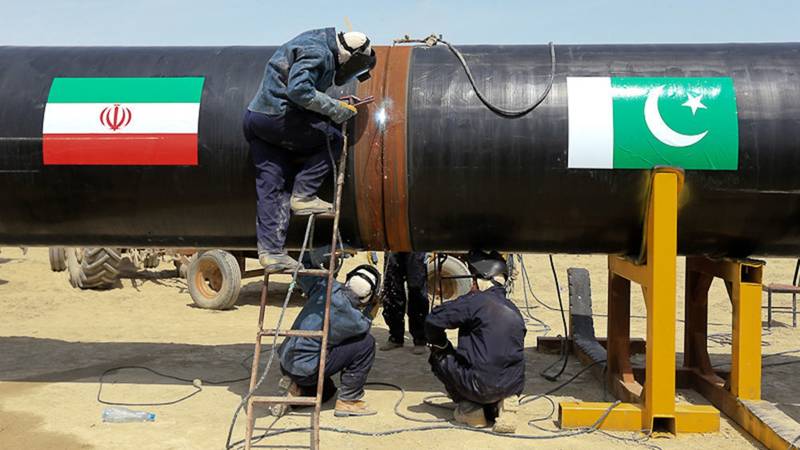
As a retired Air Force officer, it should have given me pride. My service, the ever-dependable air arm of the nation, had once again proved itself to be equal to the task of defending the national frontiers and of deterring aggression. When a similar incident took place on our eastern borders five years ago, with our Air Force doing us proud, my face had glowed with pride and my heart had filled with delight. Now, however, having heard that our Air Force had knocked out a few targets across the border in Iran, my heart has filled with sadness; a feeling similar to when two brothers, unable to resolve their issues between them, resort to throwing punches at each other. Neither is happy or victorious; both are vanquished.
In every Pakistani heart, there is a feeling of remorse at our mutually hostile conduct, of embarrassment at the thought of our common ancestors and of violation of respect for our shared culture. In neither country has any writer indulged in chest thumping at their dreadful deed. Our armed forces should have been ‘our brother’s keepers,’ providing strength to each other instead of hurling stones. It's been an incident that we both should be regretful of, and the one that should embarrass our progeny in perpetuity, who would know that we have acted silly.
However, a verbal altercation doesn't advance to a physical embroil overnight. The issues had been simmering for long. The armed groups named Jundullah and its successor Jaish-e-Adal, and BLA with its offshoots, are not new unknown names. Their terror activities, being violent and murderous, too are not hidden. Tragically, both of these groups, one anti-Iran and the other anti-Pakistan, found sanctuaries across borders, where they have been tolerated as strategic assets to be used as bargaining or reprisal assets. Complaints, warnings and veiled threats against each other had been ignored, or taken lightly. Many incidents of cross-border violence had gone unaddressed. End result of this neglect is what we both need to be ashamed of. Sadly, whenever one side complained of being attacked by terrorists from across mutual border, the reply has been ignorance of existence of such groups.
Now that both took strikes at each other, it was at camps whose precise geographical coordinates were known. Each side knew where these groups were located in their own lands. The most insulting fact is that while anti Iran groups would have been, covertly or overtly, materially supported by US-Israel (as reported by Brian Ross and Christopher Isham of ABC News in April 2007); the anti-Pakistan groups, on the other hand, have been aided by India. After all, Kulbhushan Jadhav’s network was operating from Chahbahar; a fact that would have been impossible to miss by the ever alert Iranian intelligence agencies. Both sides transgressed the line of trust.
Iran's strike in Panjgur was reckless and not considered wisely. In February 2019, Pakistan had shown it's resolve of defending its territory and honour, in the face of Indian aggression a day earlier, by bombing three sites in IOJK, and shooting down one (possibly two) Indian aircraft. Reportedly, Pakistan has been taking air and ground retaliatory action against TTP groups in Afghanistan for their offensive action in the erstwhile Tribal Areas. With that known history, it was certain beyond a doubt that an Iranian strike would be responded to through Pakistan's potent and reliable air force.
With the incident behind them, both sides need to go back to reevaluate their relationship that goes back by 2,500 years to when Cyrus the Great conquered the lands west of and upto the Indus. It was then that the Iranians coined the term Sindhu, later Latinised as India, for the lands around this River.
Our Urdu poetry, music, many foods, and, of course, many people are traced to Iranian territories. Ferdowsi, Hafez, Saa’di, Khusrau, Ghalib and Iqbal are equally revered in both nations. Pakistanis take pride that our national anthem is composed of words that are common to Urdu and Farsi. People in Pakistan rejoiced at the success of the Iranian revolution, as the people of Iran were proud of Pakistan achieving nuclear capability. This filial relation cannot be broken. Both nations therefore, should admit their mistakes, get rid of terror groups targeting each other and rebuild trust.
Images coming out of the two stricken sites are melancholy; destitute people in mud houses along dusty zigzagging streets in dilapidated neighbourhoods.
Our friendship should obviate, as it has been the case so far, the need to patrol the mutual border except for law and order, and border control. Border trade, flow of electricity from Iran and pilgrims travel from Pakistan should continue unabated. The causes of this unfortunate incident should be eliminated. The last thought to enter our minds from this point onward ought to be revenge.
There is no revenge; there is only remorse on our rather irresponsible, if not shameful, conduct. Worse would be for Iran and Pakistan to fall in the trap of India and the US respectively – to take the conflict to a higher level. No hostile power should be able to take advantage of this one failure in an otherwise friendly history. Let sense prevail, and brotherly love override animosity.

